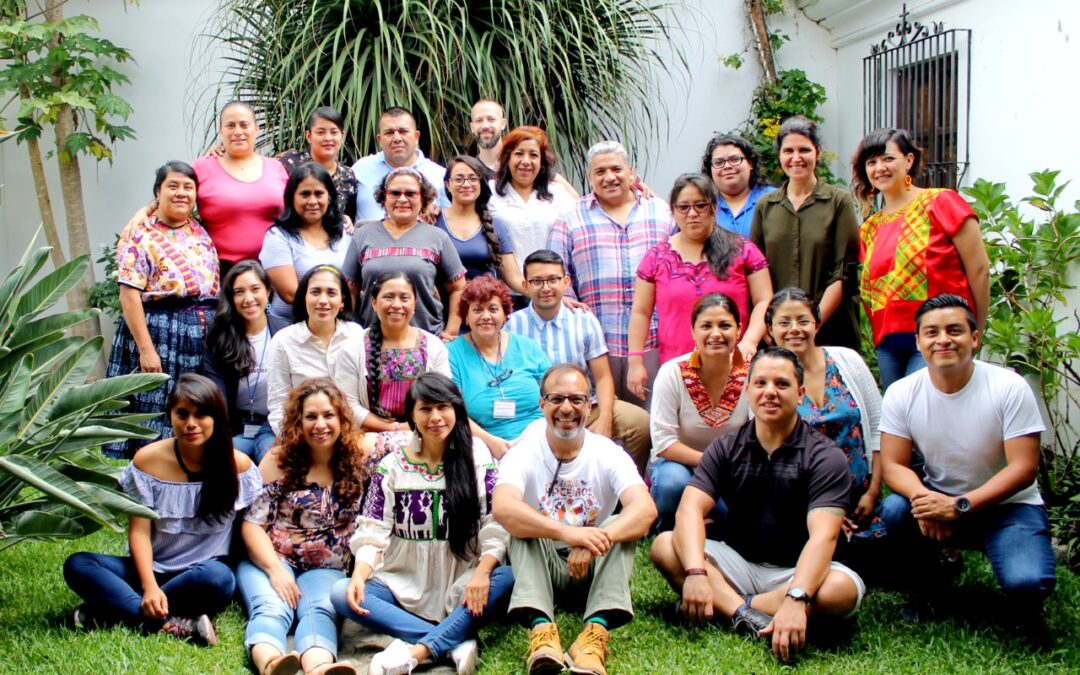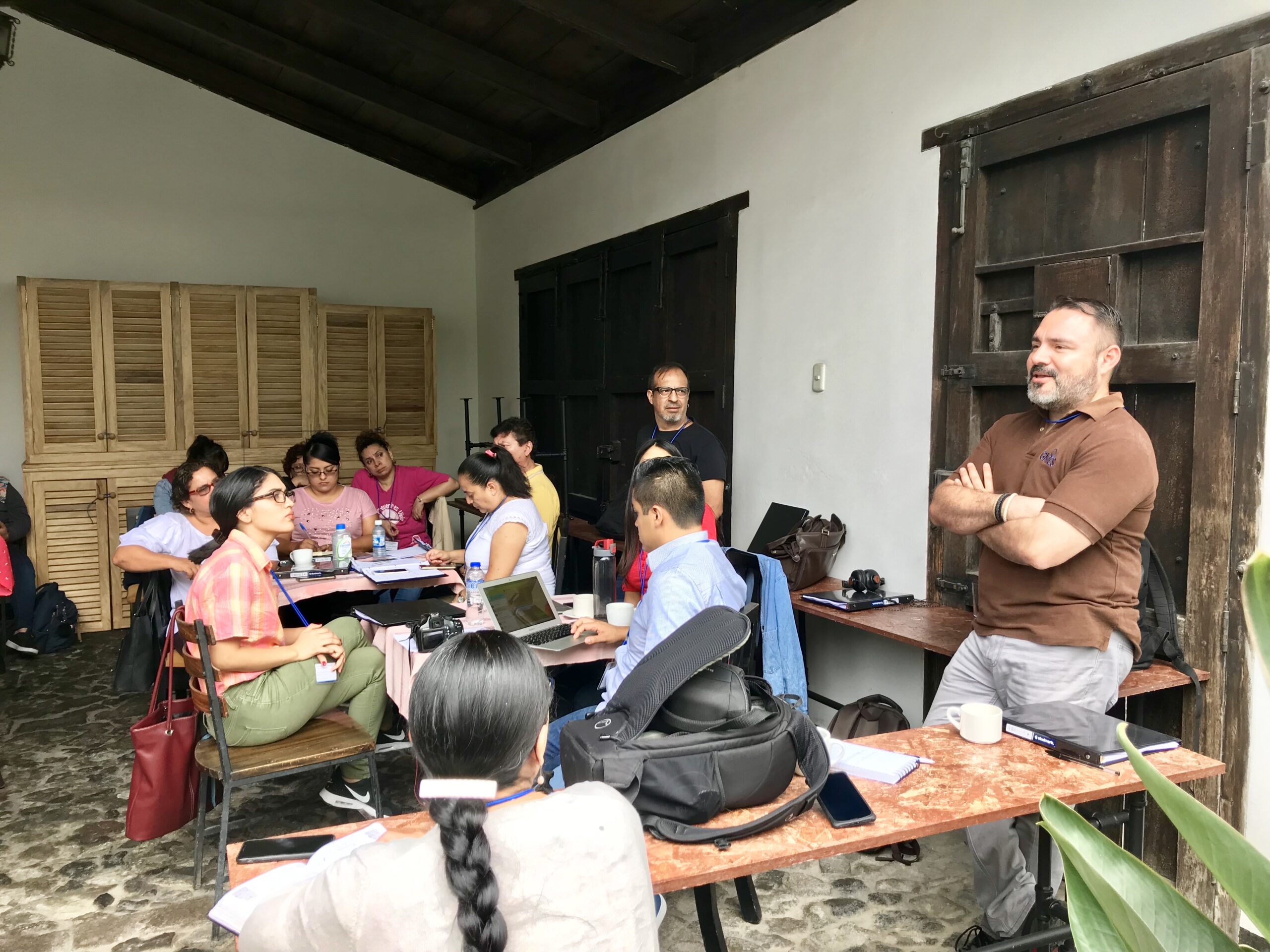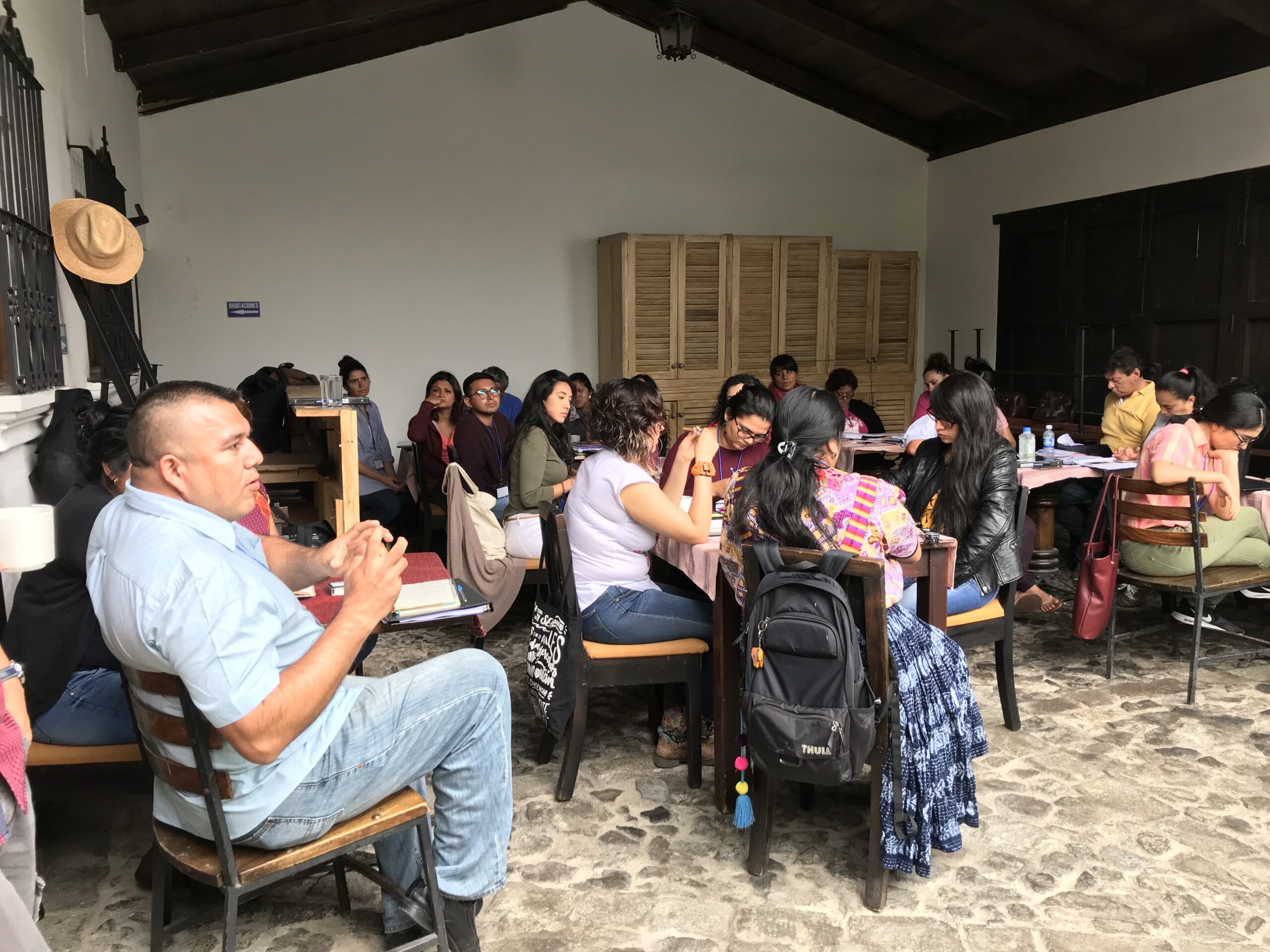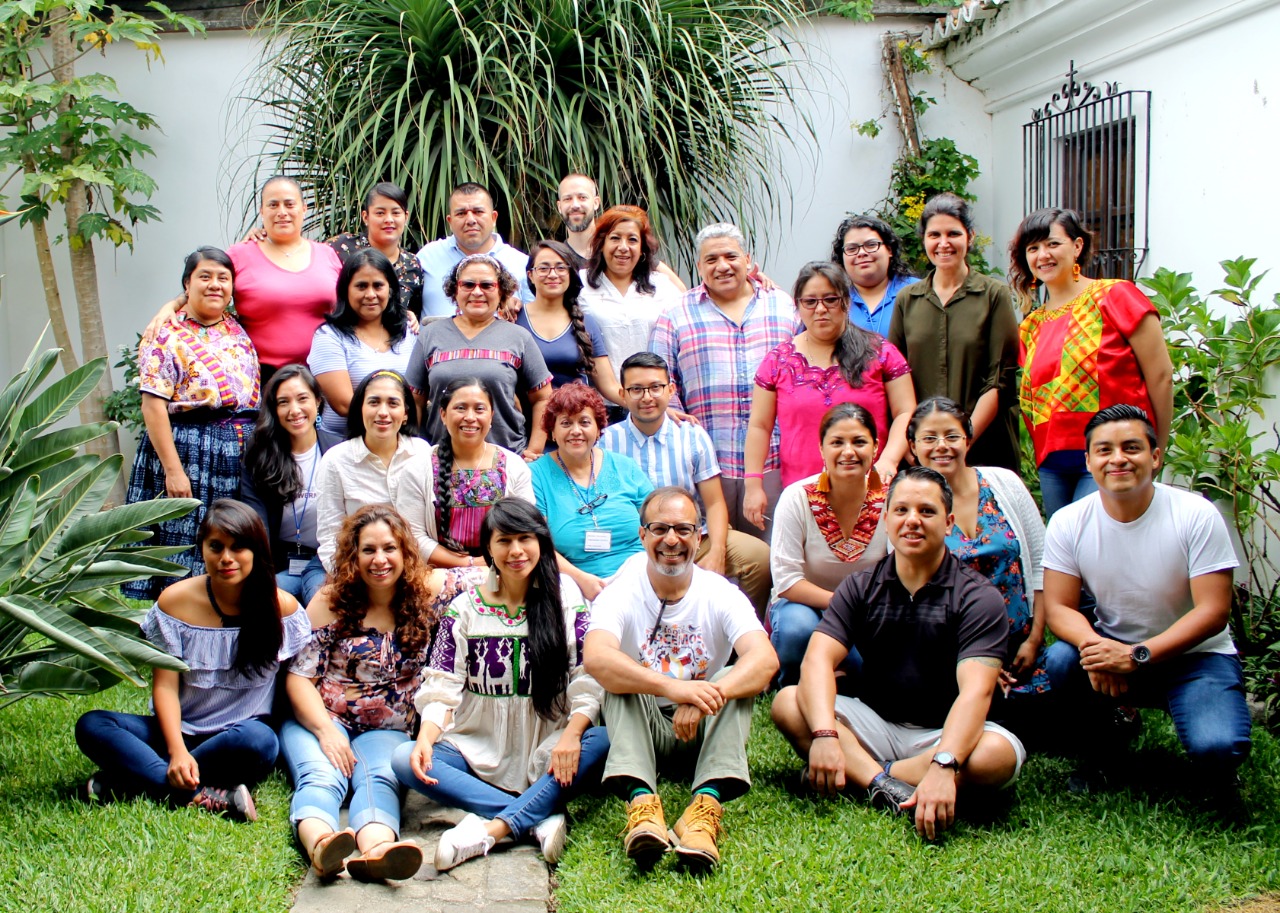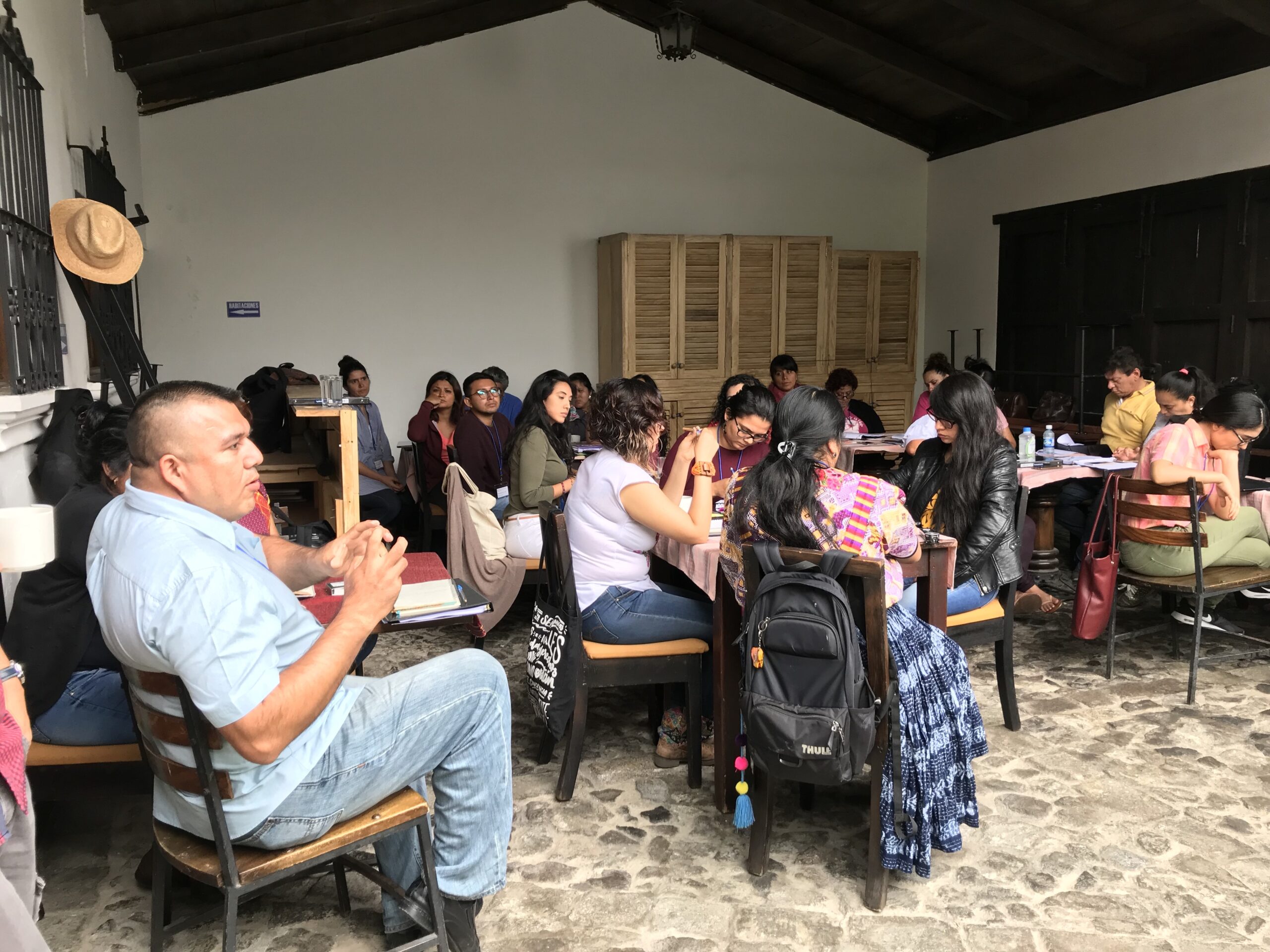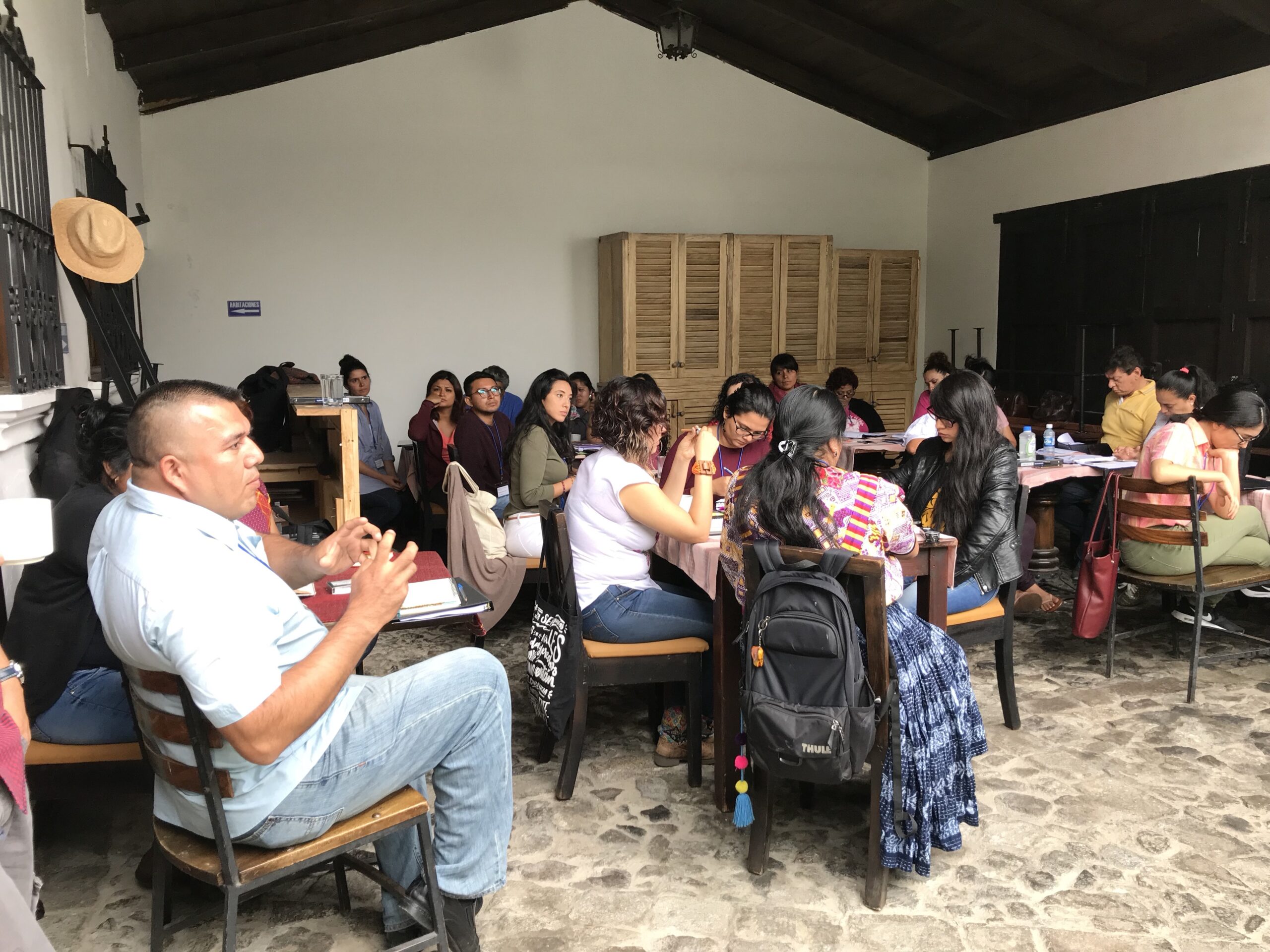Luis López hopped on a bus in San Salvador, arrived in Antigua Guatemala and showed up to the workshop hoping to find support for his idea. Luis wants to create a project that helps the families of Salvadoran migrants who have disappeared to put an end, at least in legal terms, to their many years of agony.
The idea, Luis tells me during our lunch break, is to hire a lawyer to help families to present their case before a judge so that their missing loved one can be declared “presumed dead.” With this on record, family members can make use of the goods the migrant left behind and can start collecting their social security pension.
Statistics for missing Central American migrants are not exact and underrepresentation is a huge issue. There is barely documentation of the hundreds of men and women who leave their homes, impoverished or violent communities in Central America, and undertake the trip by land only for their trail to be lost somewhere between Mexico and the United States. They simply disappear, as if the earth swallowed them whole. Their families search for them for years without success, resisting the notion that they may be dead, and finally when they resign themselves to the truth that their loved one is dead, the law does not acknowledge this because there is no death certificate and so the migrant’s assets remain frozen indefinitely.
The allocation of “presumed death” in El Salvador consists of a declaration made by a civil judge after four years of disappearance and proof that the family has executed an exhaustive search. If there is no objection, the judge declares “death not definitive” of the deceased, then the family can begin the process of collecting insurance, receiving the pensions and deciding on the use or sale of properties. This process can take an additional five or six years. After 15 years of “presumed death,” a judge may declare “total death.”
Luis knows this reality so intimately not only because he is the Project Coordinator for the Committee of Relatives of Missing Migrants in El Salvador (Cofamide), but also because he has lived it. His brother emigrated in 2001 but they lost track of him when he was travelling through Mexico. He left no children, so his parents were the beneficiaries of the social security pension, but both had already died. Luis and his sister therefor would have become the beneficiaries if they had the help of a lawyer to take them through the cumbersome and expensive process. Luis knows at least 14 families like his, willing to be part of a pilot program to support the relatives of disappeared migrants through their legal proceedings.
Luis participated in the Central America and Mexico Knowledge Exchange, a workshop organized by the Global Legal Empowerment Network to promote communal legal empowerment. The meeting was held in Antigua Guatemala from July 8th to the 14th and had 28 participants from 15 organizations. Most of them work on gender equality, environmental justice, health or migrant support projects.
The Global Legal Empowerment Network is convened by Namati, an international organization dedicated to “putting the power of the law in the hands of the people”. The Network’s primary function is to provide tools to communities, especially those who are marginalized. It seeks to make regulatory frameworks accessible to all and not just lawyers, so that people can understand them, use them and become agents of change in their own communities. Legal empowerment helps bring justice to hidden places and helps communities get involved in their own conflict-resolution on issues like child custody, gender-based violence, land disputes, the exploitation of natural resources, and access to public services, among others. The Seattle International Foundation has supported the work of this Namati network since 2018.
The Network, consisting of 2 thousand organizations and 7 thousand individual members, has held seven regional meetings, but this year marks the first time one has been held in Central America and Mexico. The results were positive. Gathering people from countries with similar realities allowed for deeper discussions and more comprehensive proposals. Luciana Bercovich, Senior Network Engagement Officer in Latin America, elaborated for me saying it also fosters the creation of a closer network of contacts for the participants.
The workshop ended with a visit in Sololá (department that surrounds the beautiful lake of Atitlán) with health defenders and with a presentation from each organization on a work plan they intend to develop in their country and put into practice based on what they learned at the workshop. The Network also made a list of topics in which participants want to be trained via webinars, online conversations and mentoring. Namati will also seek financing to start the projects.
Although Luis López was clear about his idea prior to the workshop, other participants like Edwin Reyes developed theirs during the week. Edwin is the Advocacy and Social Mobilization Coordinator at the Women’s Assistance Center (Centro Integral de Atención a la Mujer—CIAM Cancún) and on the second day of the workshop he evaluated whether he would present a youth advocacy proposal or a plan to oversee the provision of sexual and reproductive health services for young people in Mexico. He knows the inadequacies of “friendly services”, as the Government calls them, because he has used them. He knows how common it is to arrive at a store and have to ask for a condom from behind the counter for everyone to hear, the worst nightmare for any adolescent who comes for the first time and hopes to be able to rely on some level of discretion and privacy. Edwin points out with a smile that if these youth knew their rights, they could claim them.
The Global Legal Empowerment Network organized this workshop alongside the Center for the Study of Equity and Governance in Health Systems in Guatemala (CEGSS) and the Independent Monitoring Group of El Salvador (GMIES).
Paola Hurtado
Communications Coordinator

